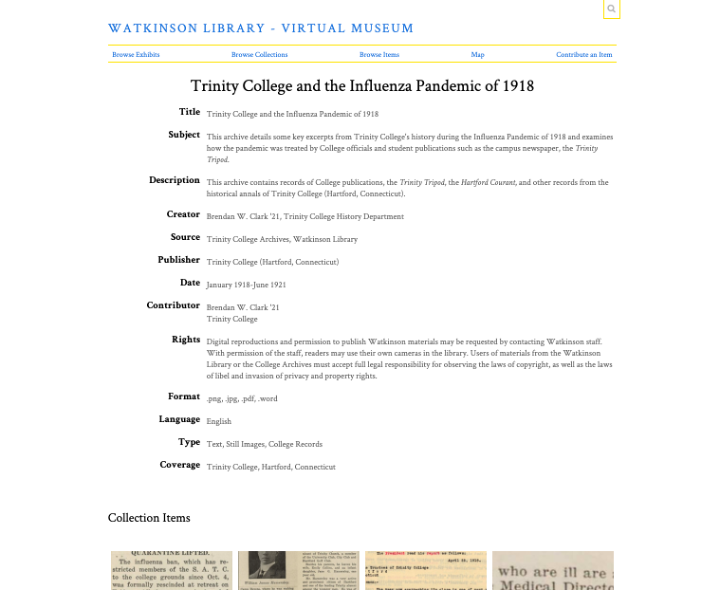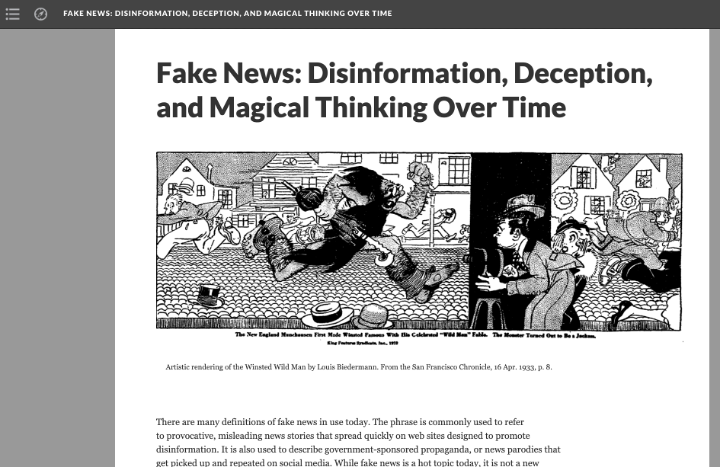Domains offers the opportunity to create dynamic digital projects on its hosting service. Though users can choose from several apps to install with one-click installation, we find most faculty and students choose to create WordPress sites, Scalar projects, and Omeka exhibits. Here are some examples of work by Trinity faculty and students to help you decide if these platforms are right for you:
WordPress
WordPress is a website-building platform that uses plugin architecture and template design. It does not require any knowledge of computer code to produce an impressive web design.
WordPress is ideal for personal portfolio sites, project sites, club pages, etc. It can easily incorporate text, media, and incorporate multiple pages drawing on a wide variety of themes.

Sample Project: “Senior Thesis Studio Arts Exhibition – Class of 2020” Trinity College, Hartford, CT. Link: https://dsp.domains.trincoll.edu/studio-arts-thesis-exhibition/
Studio Art majors and minors at Trinity College set out to deepen their practice in the thesis semester. This past year, photographers and painters have pursued an experience that is a culmination of four years of study, but the COVID-19 pandemic made in-person exhibitions impossible. This website is a platform that reaches a wider community to give these graduating artists and their work the audience and recognition they so highly deserve.
Omeka
Omeka is a web publishing platform for sharing digital collections and creating media-rich online exhibits.

Sample Project: Brendan W. Clark ‘21. “Trinity College and the Influenza Pandemic of 1918” Watkinson Library – Virtual Museum. Link: https://watkinsonlibrary.omeka.net/collections/show/1
This archive explores Trinity’s response to the 1918 flu epidemic and contains records of College publications, the Trinity Tripod, the Hartford Courant, and other records from the historical annals of Trinity College (Hartford, Connecticut).
Scalar
Scalar is a free, open source authoring and publishing platform that’s designed to make it easy for authors to write long-form, born-digital scholarship online. Scalar enables users to assemble media from multiple sources and juxtapose them with their own writing in a variety of ways, with minimal technical expertise required. Scalar is ideal for creating digital editions, open textbooks, and other text-based projects that would benefit from multimedia integrations.

Sample Project: “Fake News: Disinformation, Deception, and Magical Thinking Over Time” Link: http://edtech.domains.trincoll.edu/scalar/fake-news/index
This online exhibit on disinformation utilizes Scalar’s ability to join separate chapters, or topics, within one exhibit incorporating a table of contents, text, multimedia sources, and citations.
